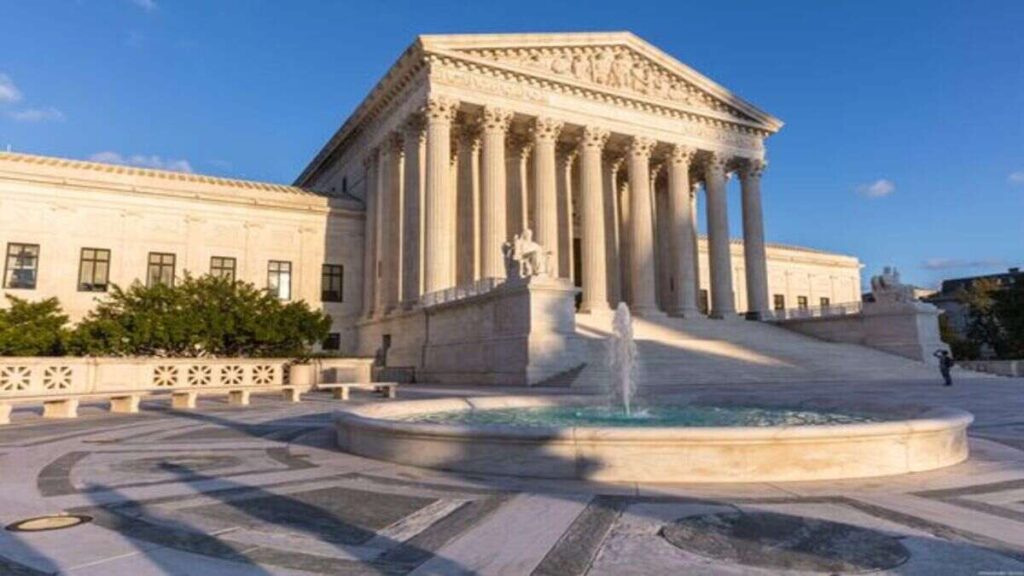The decision not to hear Mckesson left in place a lower court decision that effectively eliminated the right to organize a mass protest in the states of Louisiana, Mississippi, and Texas.
The Court did not embrace the United States Court of Appeals for the Fifth Circuit`s decision attacking the First Amendment right to protest, but it did not reverse it either.
For the past several years, the Fifth Circuit has engaged in a crusade against DeRay Mckesson, a prominent figure within the Black Lives Matter movement who organized a protest near a Baton Rogue police station in 2016.
Mckesson helped organize the Baton Rogue protest following the fatal police shooting of Alton Sterling.
ALSO READ: Supreme Court Affirms Texas’ Authority Detain Migrants, Deals Blow to Biden Administration
That decision held that the First Amendment “precludes punishment” for inciting violent action unless the speaker`s words were `intended` (not just likely) to produce imminent disorder.
No one who organizes a mass event attended by thousands of people can control the actions of all those attendees, regardless of whether the event is a political protest, a music concert, or the Super Bowl.
Indeed, as Fifth Circuit Judge Don Willett, who dissented from his court`s Mckesson decision, warned in one of his dissents, his court`s decision would make protest organizers liable for “the unlawful acts of counter-protesters and agitators.”
So, under the Fifth Circuit`s rule, a Ku Klux Klansman could sabotage the Black Lives Matter movement simply by showing up at its protests and throwing stones.
Like Mckesson, Claiborne was involved in a racial justice protest that included some violent participants.
POLL—Is Climate Change a Major Threat That Requires Immediate Policy Action?
The Fifth Circuit conceded, in a 2019 opinion, that Officer Doe “has not pled facts that would allow a jury to conclude that Mckesson colluded with the unknown assailant to attack Officer Doe, knew of the attack and ratified it, or agreed with other named persons that attacking the police was one of the goals of the demonstration.
Instead, in its most recent opinion in this case, the Fifth Circuit concluded that Claiborne`s “three separate theories that might justify” holding a protest leader liable are a non-exhaustive list and that the MAGA-infused court is allowed to create new exceptions to the First Amendment.
ALSO READ: Supreme Court Rejects MyPillow CEO Mike Lindell’s Phone Seizure Case
The Fifth Circuit faulted Mckesson for organizing “the protest to begin in front of the police station, obstructing access to the building,” for failing to “dissuade” protesters who allegedly stole water bottles from a grocery store, and for leading the assembled protest onto a public highway, in violation of Louisiana criminal law.
In fairness, the Court`s decision to leave the Fifth Circuit`s attack on the First Amendment in place could be temporary.
However, the Fifth Circuit`s Mckesson decision remains good law in those three states for the time being.
You Might Also Like:
Florida Supreme Court Upholds 6-Week Abortion Ban, Leaves Final Decision to Voters
Judges Order Early Release of January 6 Rioters Ahead of Supreme Court Ruling
Why Do People Think the Supreme Court’s New Ethics Code Is Wrong?
Arizona Supreme Court Enforces Near-Total Ban, Revives 160-Year-Old Law
Supreme Court Allows Idaho’s Restrictions on Gender-Affirming Care for Transgender Youth
